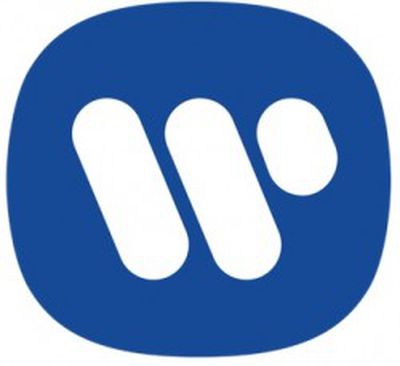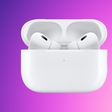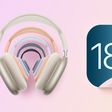Warner Music Remains Optimistic on Streaming Music, as Long as It's Paid
 Amid the explosion in popularity of streaming music services, Warner Music Group continues to support the concept, as long as subscribers are paying for the music to which they are listening, reports Re/code. Warner's CEO Stephen Cooper spoke about the company's growing interest in streaming music during the company's latest earnings conference call which was held last week.
Amid the explosion in popularity of streaming music services, Warner Music Group continues to support the concept, as long as subscribers are paying for the music to which they are listening, reports Re/code. Warner's CEO Stephen Cooper spoke about the company's growing interest in streaming music during the company's latest earnings conference call which was held last week.
Streaming music is increasingly important to Warner, with revenue from online music up 74 percent year over year. In the same period, revenue from downloads plummeted 12 percent, echoing a similar downward trend also seen by Apple's iTunes music download service.
To offset the loss from downloads, Warner currently accepts the freemium model of ad-supported streaming music, but only as a means to convert users to paying subscribers. Paid subscriptions and not freemium plans are the future of the industry, states Cooper.
In our view, right now, enabling meaningful global growth in the number of paying subscribers is the best option for artists, for songwriters, for copyright owners and for the services themselves. Subscription streaming is not only a fantastic offering for music fans, it will propel the long-term health of the music industry. We look forward to continuing to work closely with our partners to turbo-charge the adoption rate for subscription streaming.
Warner's emphasis on paying subscribers may not bode well for Apple's reported plan of slashing monthly costs for its Beats Music service. The Cupertino company is rumored to be pushing music labels to cut current subscription prices in half to $5 per month as it negotiates the terms for its recently acquired Beats Music streaming service. Apple argues that lowering the monthly cost will encourage significantly more users to sign up for the paid service, but labels are obviously considering whether those gains will outweigh the lower per-user income that comes with the cheaper pricing.
Along with a goal of lowering consumer pricing, Apple is also said to be working on an early 2015 refresh for the Beats service, likely integrating it into the iTunes brand. With iTunes Radio and Beats Music, Apple offers both ad-supported and paid streaming service, although the two are not currently integrated. iTunes Radio is currently tied to Apple's traditional download offerings, offering easy access for users to purchase individual tracks they hear on iTunes Radio. Even so, iTunes Radio has seen a tepid reception and international expansion has been extremely slow with the service available only in the United States and Australia.
Popular Stories
While the iPhone 17 Pro and iPhone 17 Pro Max are not expected to launch until September, there are already plenty of rumors about the devices.
Below, we recap key changes rumored for the iPhone 17 Pro models as of March 2025:
Aluminum frame: iPhone 17 Pro models are rumored to have an aluminum frame, whereas the iPhone 15 Pro and iPhone 16 Pro models have a titanium frame, and the iPhone ...
With the second release candidate of iOS 18.4 that Apple seeded out today, the company finally provided us with release notes that give a full rundown on what to expect.
There's an Apple Vision Pro app, new Apple Intelligence features for notifications and additional language support, plus an Apple News Food feature for Apple News+ subscribers, and several updates that should improve the...
Apple is reportedly working on a new Magic Mouse. Below, we recap what to expect.
The two key rumors for the Magic Mouse 3 so far include a relocated charging port, along with a more ergonomic design.
It was briefly rumored that the Magic Mouse 3 would also feature voice control, but that was misinterpreted information.
Relocated Charging Port
While the Magic Mouse switched from...
We've been hearing rumors about a foldable iPhone for almost a decade now, but it looks like we might finally see the device come to fruition in 2026. We're going to be waiting many more months for the foldable iPhone, but so far we're hearing good things.
Apple wants to make it creaseless. It's taken Apple multiple years to design a foldable iPhone that it's satisfied with because Apple ...
Apple's big developer event is a little over two months away, and rumors about what we can expect to see in Apple's next major operating system updates are becoming increasingly frequent.
A public release of iOS 18.4 is also imminent with a number of updates and improvements, although we won't be getting the major Apple Intelligence Siri upgrades that had reportedly been planned for this...
Multiple sources have claimed that iOS 19 will introduce a new design with more translucent buttons, menus, notification banners, and more, and there is now another clue that points towards this glass-like appearance.
Bloomberg's Mark Gurman today said the new design project is codenamed "Solarium" internally. A solarium is a room with glass walls that allow in plenty of sunlight, so this...
In the mid-to-late 2000s, Facebook was all about staying connected with friends and family. However, as the social media platform added new features and grew over time, that core experience began to get drowned out.
That changes starting now, according to Meta, which today introduced a new feature that will "bring back the joy" of classic Facebook.
Specifically, Meta has redesigned the...
Apple's upcoming "iPhone Fold" will feature a foldable screen with a 4:3 aspect ratio, according to a Chinese leaker who previously leaked the book-style device's display dimensions.
The Weibo-based account Digital Chat Station claims that Apple will adopt a "roughly" 4:3 aspect ratio on the inner display in order to achieve consistency between the outer display, as well as to ensure parity...
 Amid the explosion in popularity of streaming music services, Warner Music Group continues to support the concept, as long as subscribers are paying for the music to which they are listening, reports Re/code. Warner's CEO Stephen Cooper spoke about the company's growing interest in streaming music during the company's latest earnings conference call which was held last week.
Amid the explosion in popularity of streaming music services, Warner Music Group continues to support the concept, as long as subscribers are paying for the music to which they are listening, reports Re/code. Warner's CEO Stephen Cooper spoke about the company's growing interest in streaming music during the company's latest earnings conference call which was held last week. 




















